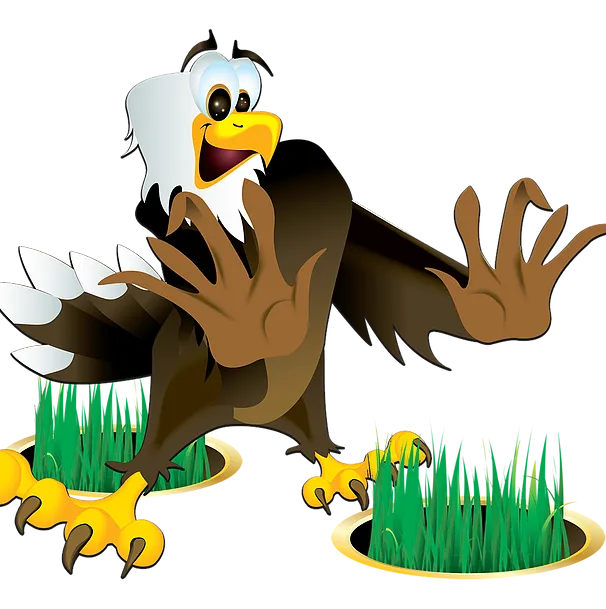Sod Webworms? Eagle Lawn Care and Pest Control Has You Covered
Lawn Moths Can Wreck Your Lawn—Let Us Stop Them Before They Start
On warm Florida evenings, do you ever see small, tan-colored moths fluttering in a zigzag pattern across your lawn? These "lawn moths" are a sign that sod webworms may be active—and that your turf could be at risk.
At Eagle Lawn Care and Pest Control, we specialize in identifying and eliminating sod webworm infestations before they cause major damage. If you’re noticing brown patches or ragged grass blades, call our team today at 727-953-8180 for fast, effective treatment.
What Are Sod Webworms?
Sod webworms are actually the larvae (caterpillar stage) of small lawn moths. These moths lay eggs across your lawn, which hatch into hungry caterpillars that feed on grass blades—usually at night. Over time, this feeding causes uneven patches, jagged grass, and large brown areas that can spread quickly if not treated.
Adult moths are not harmful themselves, but they are a clear warning sign. After mating, females drop dozens of tiny eggs across the lawn while in flight. Once the larvae hatch, they begin feeding almost immediately. In Florida’s warm climate, sod webworms can complete several generations in one year, making them a year-round threat in Pinellas County Florida.
Common Signs of Sod Webworm Damage
Sod webworms often go undetected until the damage is already done. Our lawn care specialists look for key indicators, including:
- Brown or thinning patches in your lawn
- Grass blades with ragged or chewed edges
- Silken tunnels at the base of the grass (especially visible in morning dew)
- Increased bird activity as they feed on the larvae
- Small moths flying low across the grass around dusk
Some damage may look similar to drought stress or pet urine burns, but sod webworms are the true cause in many cases.
When and How They Feed
Sod webworms are night feeders, chewing away at the tips of grass blades while hiding in silken tunnels during the day. Their favorite grasses include:
- St. Augustine
- Bermudagrass
- Bahia grass
Because they don’t damage the roots or stems, your lawn can recover—but only if the infestation is caught and treated early.
How We Treat Sod Webworms
At Eagle Lawn Care and Pest Control, we don’t just treat pests—we solve the root of the problem with precision and care. Here’s how we handle sod webworm infestations:
1. Detailed Lawn Inspection
We identify active feeding zones, webworm signs, and any turf stress indicators.
2. Evening Insecticide Application
Treatments are timed for dusk when the larvae are feeding for maximum effectiveness.
3. Ongoing Monitoring
We revisit and assess after treatment to ensure pests don’t return.
4. Preventive Lawn Practices
We help you with best practices for mowing, watering, and overall lawn health to prevent future outbreaks.
We also use techniques like the soap flush test and morning dew inspections to detect sod webworm activity.
Trust the Local Experts in Tampa Bay
With Florida’s year-round growing season and warm nights, sod webworms are a recurring challenge. But you don’t have to face them alone. At Eagle Lawn Care and Pest Control, we’ve helped homeowners across the Bay area keep their lawns green, thick, and pest-free—with quick service and lasting results.
- Fast response times
- Customized treatment plans
- Professional, courteous technicians
- Decades of Florida-specific lawn care experience
Serving All of Pinellas County, Florida
Eagle Lawn and Pest Control proudly serves homeowners and businesses throughout Pinellas County, FL, with expert pest and lawn treatment services. Whether you're dealing with chinch bugs, webworms, or fire ants, our team is ready to help protect your turf from infestation and long-term damage.
We proudly provide Brown Patch control and lawn care services to:
- Clearwater
- Largo
- St. Petersburg
- Dunedin
- Seminole
- Palm Harbor
- Gulfport
- Tarpon Springs
- Indian Rocks Beach
- Safety Harbor
- And all 24 municipalities across Pinellas County, Florida
Whether you’re a homeowner in Belleair or manage a commercial site in Safety Harbor, our local technicians are ready to help.
Don't Wait—Contact Eagle Lawn and Pest Control Today
Brown Patch won’t go away on its own. And the longer it’s ignored, the worse—and more expensive—it gets. Our team is standing by to inspect your lawn, diagnose the issue, and start treatment fast.
📞
Call
727-953-8180 or request a free lawn analysis customized to your property.
Let
Eagle Lawn and Pest Control help you take back your turf—starting today.


